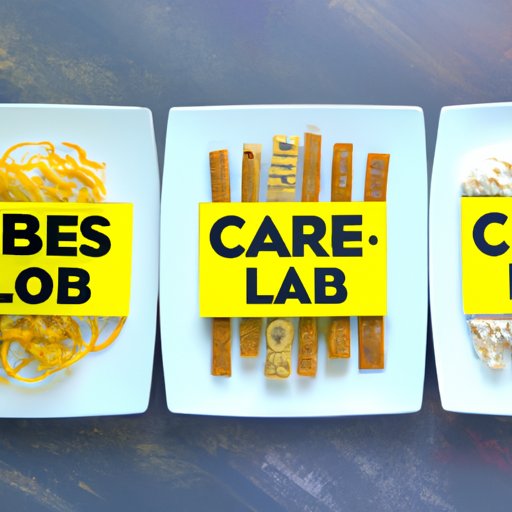Introduction
Carbohydrates have long been a staple in diets around the world, providing essential energy and nutrients. But recent research has suggested that excessive carb consumption can lead to weight gain, diabetes, and other health issues. If you’re looking to reduce your carb intake and improve your overall health, here are some tips and benefits to help you get started.
Track Your Carb Intake
The first step in reducing your carb intake is to track your current intake. A food diary or app can help you record what you’re eating and how many carbs it contains. This will give you an idea of where you need to start when it comes to reducing your carb intake.
Once you’ve tracked your current carb intake, set realistic goals for yourself. Start small and gradually reduce your carb intake over time. Aim for a daily carb intake of no more than 150 grams per day, depending on your individual needs and health goals.
Choose Low-Carb Alternatives
When it comes to eating fewer carbs, it’s important to choose the right alternatives. Vegetables such as broccoli, cauliflower, and spinach are all great low-carb options. They are also high in fiber and other essential nutrients. Proteins such as lean meats, fish, eggs, and tofu are also great sources of low-carb nutrition.
Increase Protein Intake
Increasing your protein intake is another great way to reduce your carb consumption. Protein is essential for building and maintaining muscle, and it can help keep you feeling full for longer periods of time. Good sources of protein include lean meats, fish, eggs, dairy products, nuts, and seeds.
In addition to helping reduce your carb intake, increasing your protein intake can also provide other health benefits. Studies have shown that increasing protein intake can help with weight loss, muscle growth, and improved metabolic health.
Limit Refined Carbs
Refined carbs such as white bread, pasta, and sugary snacks should be limited as much as possible. These foods are high in calories and low in essential nutrients. In addition, they can cause blood sugar spikes, which can lead to cravings and overeating.
Eating too many refined carbs can also increase your risk of developing type 2 diabetes and other chronic diseases. For these reasons, it’s best to avoid or limit these types of foods as much as possible.
Eat More Fiber
Fiber is an important part of any healthy diet, and it can also help you reduce your carb intake. Foods such as whole grains, fruits, vegetables, legumes, and nuts are all great sources of fiber. Eating more fiber can help you feel fuller for longer periods of time, which can lead to reduced carb consumption.
In addition to helping reduce your carb intake, increasing your fiber intake can also provide other health benefits. Studies have shown that higher fiber intake can help with weight loss, improved digestion, and lower cholesterol levels.
Conclusion
Reducing your carb intake doesn’t have to be difficult. By tracking your current carb intake, setting goals to reduce it, choosing low-carb alternatives, increasing your protein intake, limiting refined carbs, and eating more fiber, you can successfully reduce your carb consumption and improve your overall health.
Remember, reducing your carb intake can lead to a number of health benefits, including weight loss, improved metabolic health, and lower cholesterol levels. With the right approach, you can successfully reduce your carb intake and enjoy the benefits of a healthier lifestyle.
(Note: Is this article not meeting your expectations? Do you have knowledge or insights to share? Unlock new opportunities and expand your reach by joining our authors team. Click Registration to join us and share your expertise with our readers.)
